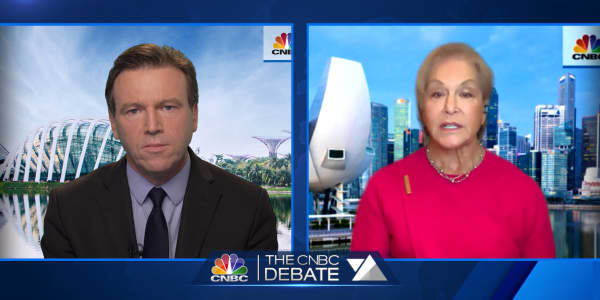
SINGAPORE — Australia and China need to find common ground despite their differences, as the economic relationship between the two is an important one, said John Howard, former Australian prime minister.
"The relationship economically between Australia and China is very important, and there are tensions in that relationship and they have to be attended to," Howard said on Wednesday, on the sidelines of the Singapore Summit.
The relationship between the two countries has been fraught with tension, with Beijing launching an investigation into some wine imports from Australia last month, following actions on other commodity imports.
"I certainly don't think in any way Australia should get into a situation of giving up on its relationship with China; it's very important to us. Our commodity exports (like) iron ore, coal and the likes are very important to the Australian economy," said Howard, who was in office from 1996 to 2007.
China is one of Australia's key trading partners, with the Asian economic powerhouse buying much of the commodity products produced Down Under.
The recent downward spiral in the China-Australia relationship was triggered by Canberra's call for an international probe into the origins of the coronavirus, which was first reported in the Chinese city of Wuhan.
Howard did not mention the probe, but emphasized the need for Australia to take a balanced approach to its relationship with China — even as tensions between the U.S. — Canberra's closest ally — and China simmer.
"I don't think we should allow ourselves to be defined by whom to support between China and the United States. We can have good relations with both of those countries, albeit of a different kind, because we are different societies," he said.
"I see the the bilateral relationship between Australia and China as something that we have to attend to and nurture according to our own particular interests, always remembering, of course, that we are part of a group of Western countries that believe in some fundamental values," Howard added.
Instead, Australia and China need to find some consensus in spite of their different histories and political systems, he said.
"It's tremendously important in these difficult times, particularly against the background of the pandemic, to take a balanced approach, to try and find areas of common agreement," said Howard.
As for issues surrounding commodities like wine, Howard said to "let the process work, let's not over-dramatize some of the differences that are emerging."
China's authoritarian regime 'a fact of life'
Howard said that even though China has taken a more assertive stance internationally since President Xi Jinping took office, its internal political system hasn't changed that much — it's just being more rigorously enforced now than in the past.
"China has been, ever since 1949, an authoritarian country run by the Chinese Communist Party, and that's a fact of life, we have to work within that," he added.
"You can't expect a country that has a fundamentally different political system to agree to change that system, you have to live with that — without conceding, of course, any ground on things that are important to our own values," he said.
So instead of frustrating the economic ties between the two countries, Australia needs to work to maintain its fundamental values while preserving the mutual benefits of the economic relationship with China.
"It is more than just common sense, it's a matter of long-term sensible policy," he said.




